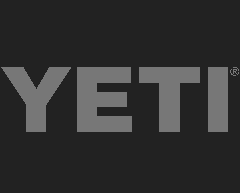“Keeping it Wild” reef near Port O’Connor to be largest in Texas waters
Texas Parks and Wildlife Foundation (TPWF) and Coastal Conservation Association Texas are partnering with the Texas Parks and Wildlife Department to create the largest artificial reef ever placed in Texas waters. The 381-acre reef will be positioned six miles offshore from the Port O’Connor jetties and Matagorda Island.
The project is being funded through TPWF’s fundraising effort Keeping it Wild: The Campaign for Texas. Private dollars raised by Coastal Conservation Association’s Building Conservation Trust and donated to TPWF for the campaign will be leveraged with state dollars from the department’s Texas Artificial Reef Program and funds from Shell Oil Company through Coastal Conservation Association’s national habitat program.
“We’re excited to announce this spectacular project in partnership with Coastal Conservation Association and Texas Parks and Wildlife,” said Kelly R. Thompson, chair of TPWF’s board of trustees. “Like the landmark acquisition of Powderhorn Ranch, this transformational conservation project would not be possible without a partnership that leverages public dollars with private philanthropy.”
The structure, which will be called the Keeping it Wild Reef, will be the largest yet permitted in Texas, about twice as big as any currently in place. It will be constructed in waters 66-70 feet deep. The reef will consist of 500 concrete pyramid structures with holes large enough for fish to swim through. The outside of each pyramid will be embedded with limestone to provide marine life such as worms and other invertebrates with a hard substrate to burrow into. The structures will also have an opening at the top large enough to allow any sea turtles to escape if they wander in. The reef material is expected to be under construction by the end of 2016, with placement of the structures occurring in 2017.
“This reef combines everything an offshore angler could want with close proximity to the iconic launches of Port O’Connor, and it is emblematic of what can be accomplished in great habitat partnerships,” said Sean Stone, executive director of Coastal Conservation Association’s Building Conservation Trust, which provides funding for conservation and restoration projects across the country. “Through this partnership effort, we are improving the nearshore marine environment in Texas waters while increasing anglers’ access to the resources they love. This is truly an exciting time in marine habitat creation.”
Texas Senator Lois Kolkhorst represents District 18, which includes Port O’Connor.
“I applaud this public/private effort to create the largest reef of its kind in Texas,” said Sen. Kolkhorst. “The Port O’Connor area is famous for its coastal plants and fish, so this is a fitting location for such a project. By working together, we will be supporting hundreds of wildlife species that call the Gulf of Mexico home.”
Artificial reefs provide critical habitat for marine species and have been described by marine biologists as oases in the vast expanse of mud and sand that covers the floor of the Gulf of Mexico. These artificial underwater havens provide hard surfaces that attract invertebrates such as barnacles and clams. These encrusting organisms are the beginnings of an interactive food web which supports a host of fish species.
Artificial reefs not only enhance fishery resources but also fishing and diving opportunities off Texas. Hundreds of thousands of anglers and divers travel offshore each year and most visit one of the artificial reef sites managed by the Texas Parks and Wildlife Department or the even more numerous unintentional artificial reefs created by petroleum platforms scattered throughout the Gulf.
An interesting feature of the new Keeping it Wild Reef site is that two derelict petroleum platforms are within its 381-acre footprint, making them ideal candidates for the Texas Parks and Wildlife Department Rigs-to-Reefs program. This program re-purposes old oil rigs, creating marine habitat as well as saving significant dollars from the cost to remove them. Texas Parks and Wildlife Department officials are currently working with the Texas General Land Office on plans to convert the two derelict platforms into reefs in the future, which will further enhance the site.
“This project builds on the longstanding partnership we have with Coastal Conservation Association,” said Carter Smith, executive director of the Texas Parks and Wildlife Department. “It will build and enhance habitat in nearshore waters that anglers, divers and other enthusiasts will enjoy for generations to come.”
The announcement of the new reef coincided with the release of the second lithograph in a series by noted Fort Worth artist Billy Hassell. Hassell has partnered with TPWF to benefit the Keeping it Wild campaign. The second lithograph features a colorful ocean scene celebrating the Texas Gulf Coast.
The project is being funded through TPWF’s fundraising effort Keeping it Wild: The Campaign for Texas. The Keeping it Wild campaign is the largest fundraising initiative ever undertaken by TPWF and aims to raise more than $100 million for strategic conservation priorities by 2018. For more information about the campaign, please visit the Texas Parks and Wildlife Foundation website at tpwf.org or contact Anne Brown at 214-720-1478.
Media contact:
Lydia Saldaña
817.851.5729
lsaldana@tpwf.org
All TPWF news releases available online: tpwf.org/media/press-releases
Billy Hassell lithograph project info: http://www.tpwf.org/happenings/billy-hassell-art-series/
Since 1991, Texas Parks and Wildlife Foundation (TPWF) has leveraged public funds with private philanthropy to advance Texas’ proud outdoor traditions and conserve our state’s wildlife, habitat, recreational areas, and natural resources. Since its inception, TPWF has raised more than $125 million to help ensure that all Texans, today and in the future, can enjoy the wild things and wild places in Texas.
The Building Conservation Trust (BCT) was founded in 2010 as the national marine habitat program of Coastal Conservation Association. BCT is a 501c3 non-profit organization exclusively dedicated to providing funding for local, state and national fisheries, habitat conservation and restoration projects. BCT has created a model for the successful collaboration of business, non-profit organizations and government agencies to revitalize critical habitat and establish a vibrant foundation for the marine ecosystem.
###




